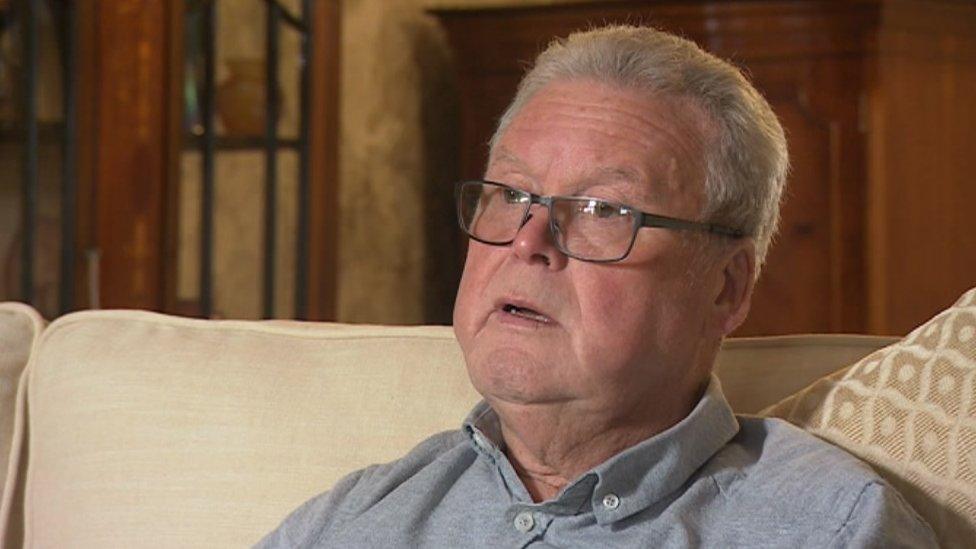University Hospitals Birmingham: Improvements but 'a mountain to climb'
- Published

A culture of bullying and fear was uncovered at hospitals in Birmingham following a BBC investigation
A report has found improvements at a hospital trust plagued by a culture of fear and bullying, but said there was still "a mountain to climb".
Prof Mike Bewick has been looking into University Hospitals Birmingham (UHB) after an investigation by the BBC.
The second phase of his report, external confirmed previous findings of a bullying culture and uncovered further concerns about misogyny and prejudice.
But he noted improvements and the trust said it was "listening and learning".
"There is a mountain to climb… but we see a trajectory of improvement," Prof Bewick said.
The trust is responsible for the Queen Elizabeth (QE), Heartlands, Good Hope and Solihull hospitals, and is one of the biggest trusts of its kind in England, employing more than 22,000 staff.
Sexual harassment
In March, the first of Prof Bewick's reports uncovered a "historical coercive bullying culture where fear and threats were used as a management tool" and in the second phase of the review, he noted "these early themes have been confirmed by this more extensive inquiry".
Other issues highlighted in his latest report, published on Friday, include claims of sexual impropriety.
He said two women had made allegations of sexual harassment and the scope of future reviews would be widened to investigate this issue further.
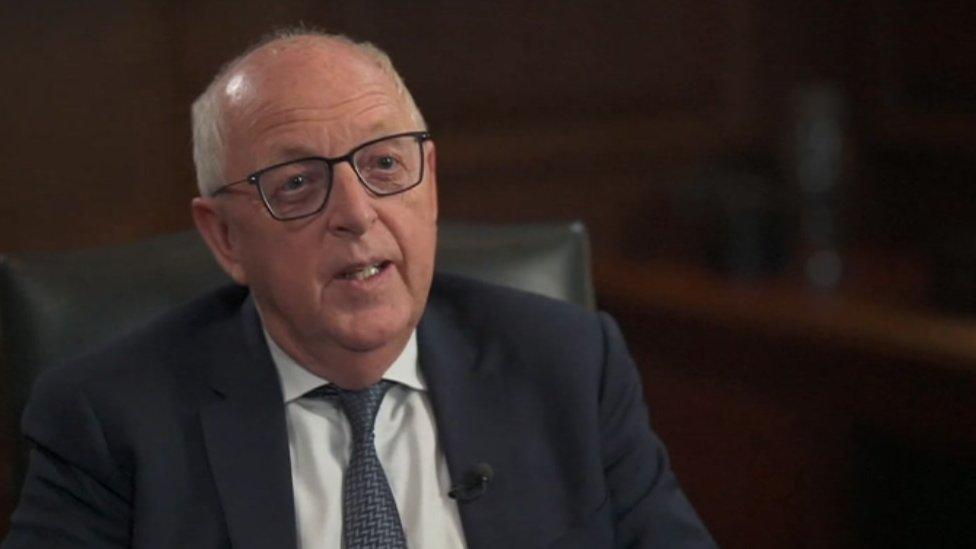
Prof Mike Bewick said there had been improvements, but more change was needed
Another new line of inquiry came from concerns about "the integrity of data entry in cardiac surgery", which Prof Bewick said had "only recently come to light" and would be examined further.
"Serious concerns" over training were also identified in the report, with a team from Health Education England concluding training was "unsatisfactory and patient safety may be compromised" in three key areas - obstetrics and gynaecology, haematology and acute and emergency medicine.
However, it added that "active steps are now being taken to rectify these shortcomings".
Taking a closer look at the trust's governance for phase two, the author noted "significant progress" to restructure the board, which staff had criticised for its "whiteness".
This was echoed in a report from NHS England, external, which said that out of the thousands of staff employed by the trust, just nine people from ethnic minorities were on the most senior bands - band nine and Very Senior Manager level.
"Some changes have been implemented but there is still much work to be done to move towards a modern board role in touch with the risks the organisation faces and how it mitigates them," Prof Bewick said, adding the trust's new chair, Dame Yve Buckland, was "committed" to change.
He said staff had similarly raised concerns there were "limited job opportunities" for women and ethnic and diverse communities, saying an environment of "medical patriarchy" was "a dominant cultural determinant".
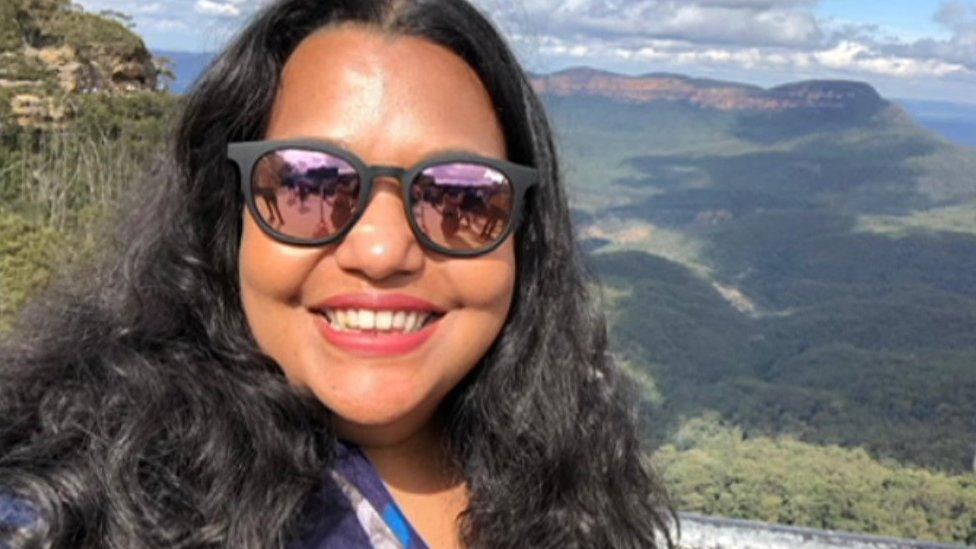
Junior doctor Vaish Kumar left a note blaming her suicide on the QE Hospital, where she worked
As in March, Prof Bewick's latest report cited the death of Dr Vaish Kumar, 35, a junior doctor at the QE Hospital who left a suicide note blaming her death entirely on the place where she worked.
He wrote that UHB's response to her death was "one of the most significant concerns" but that the trust had now made a full apology to her family.
The report also examined an investigation by BBC Newsnight, which found that none of more than 20 referrals to the General Medical Council (GMC) by the trust had resulted in any action.
Prof Bewick found that "most if not all had a basis for actual referral or at least merited consideration" but noted "striking similarities" in how some senior clinicians' cases were handled which "give rise to new concerns".
"One senior consultant surgeon has been excluded from work for over five years and a second for over six months, with so far no resolution to their case," he wrote.
"This is extremely serious, potentially harmful, and deprived the system of badly needed expertise."
Local MP and chair of the cross party reference group Preet Gill paid tribute to the improvements, but highlighted three sections of the report that were still a concern to her, including the referrals made by the GMC.
She said: "There are some data concerns around cardiac surgery, that is very important because this is about patient safety and needs to be looked at.
"There have been new concerns on misogyny and sexual harassment - I take that very seriously."
She said the cross-party group would be meeting with Prof Bewick next week and would have "lots of questions".
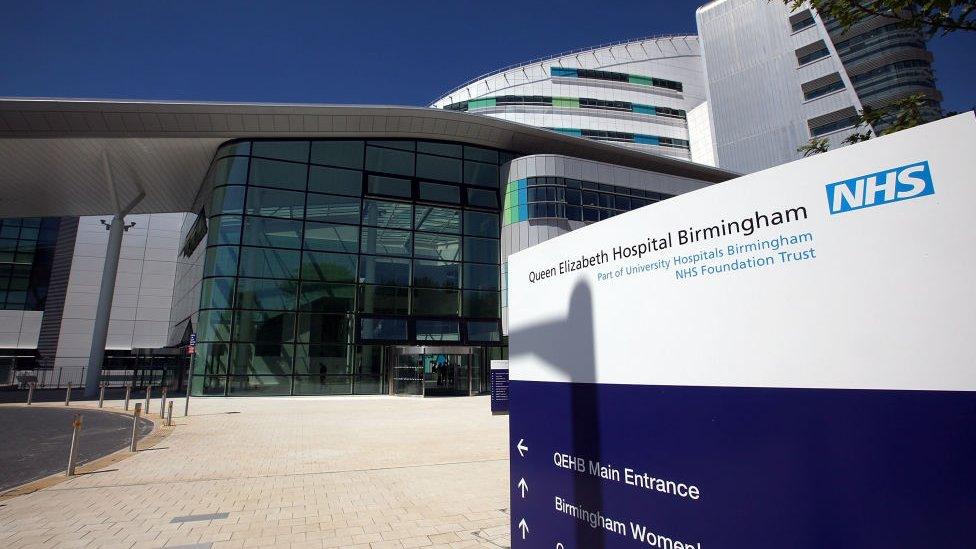
UHB said it had already made changes and would reflect on further findings
Following the publication of his report, Prof Bewick said while it was "positive to note that good progress has been made" it was "vital UHB now further builds on lessons learned".
UHB said it had "taken the concerns raised to date incredibly seriously and have reflected, reviewed and reset".
Lasting culture change
"We will approach any new lines of enquiry that are raised within this second report in the same way," it said.
"Not wishing to wait solely for the findings and recommendations from the external reviews, a series of bold - but necessary and fundamental - changes have already been made to put us back on a positive path."
David Melbourne, Chief Executive at NHS Birmingham and Solihull Integrated Care Board said the report showed UHB had taken the recommendations of the initial review seriously.
"Their improvement journey will be a long one, and while we have seen the beginnings of change, much work is still to be done to create a lasting and different culture across all levels and disciplines, and across all hospital sites," he said.
If you have been affected by the issues raised in this article, help and support is available via BBC Action Line.

Follow BBC West Midlands on Facebook, external, Twitter, external and Instagram, external. Send your story ideas to: newsonline.westmidlands@bbc.co.uk, external
- Published29 March 2023
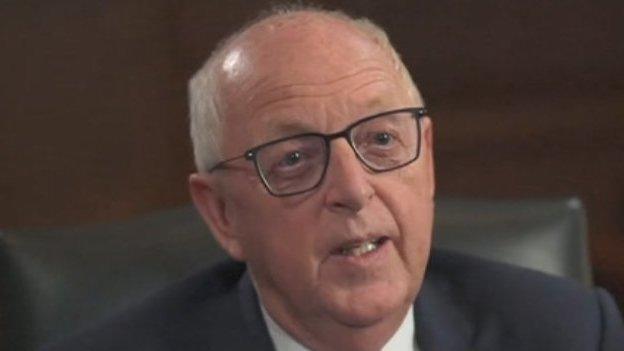
- Published28 March 2023

- Published11 February 2023
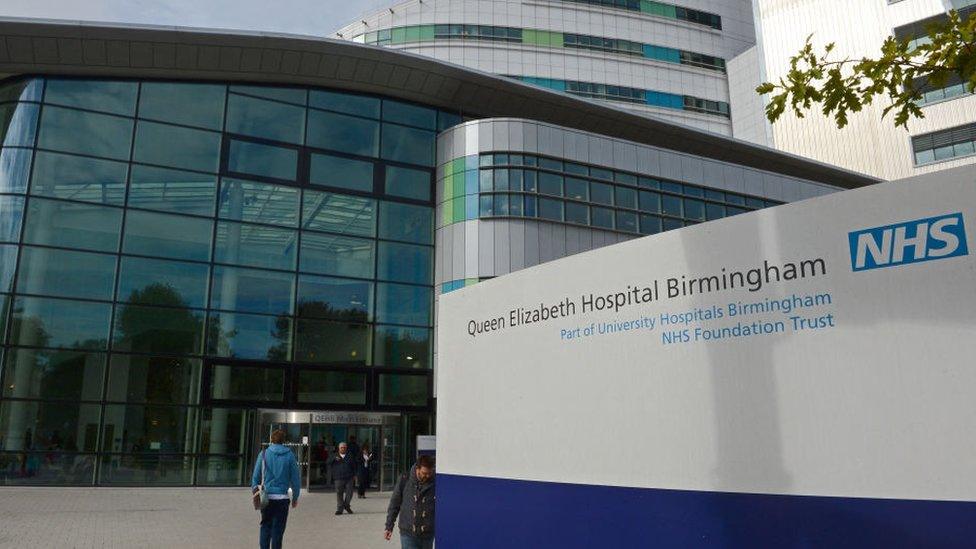
- Published13 January 2023
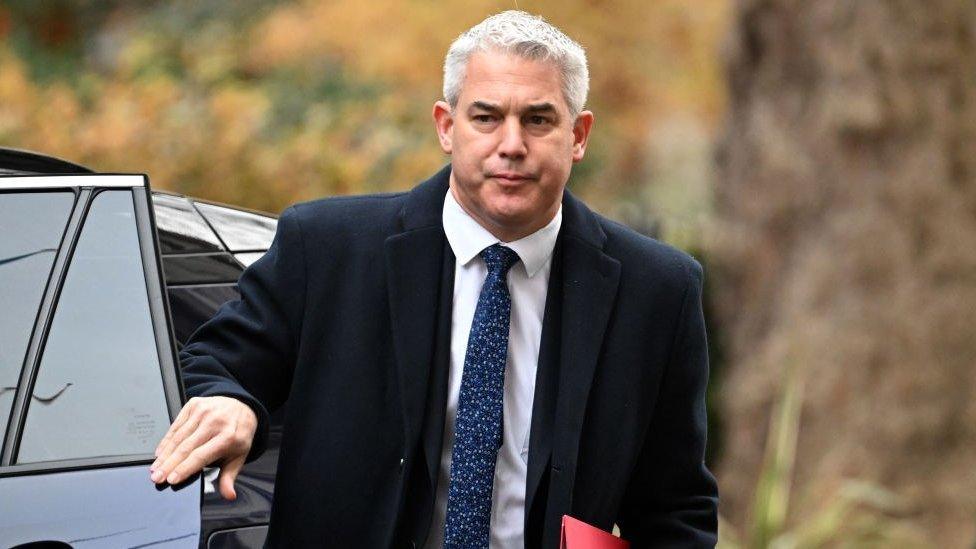
- Published13 January 2023
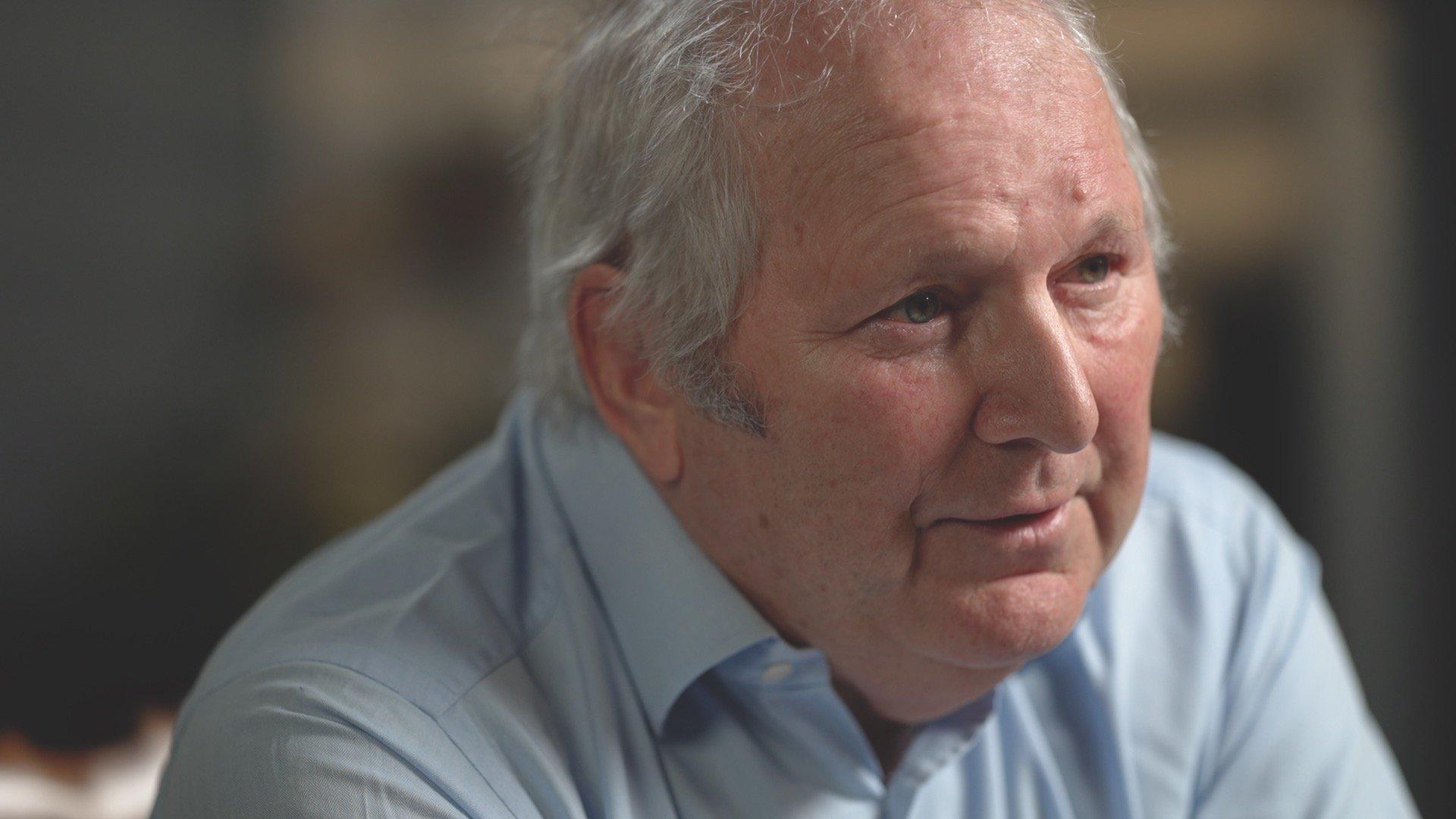
- Published9 December 2022
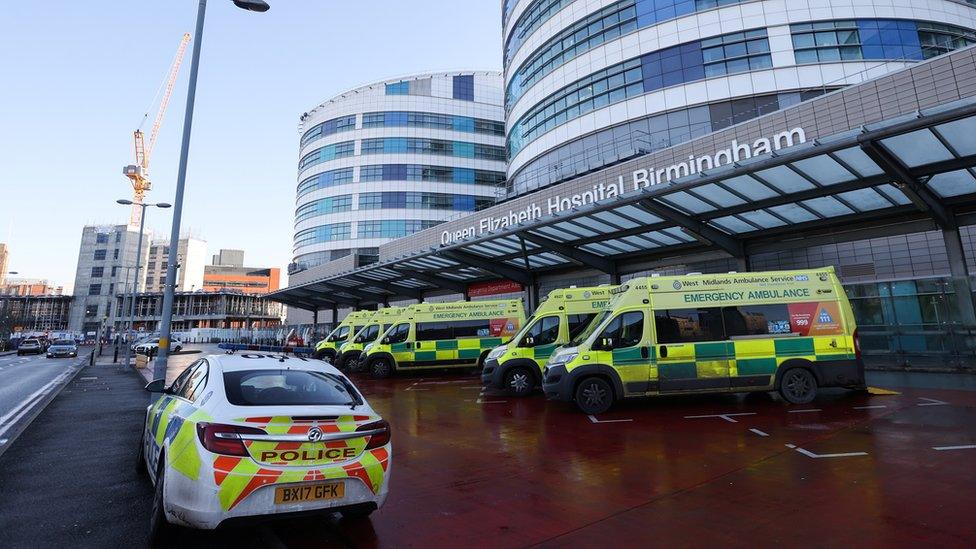
- Published1 December 2022
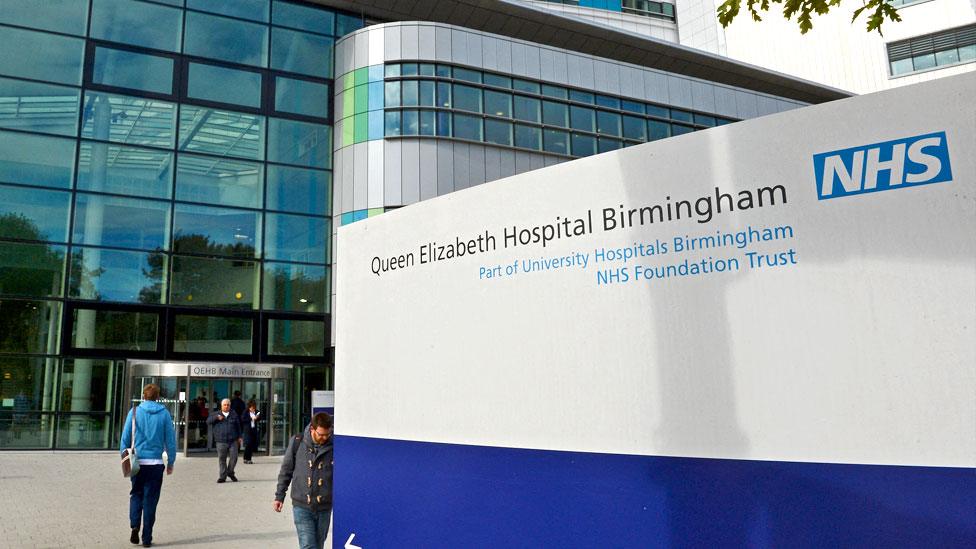
- Published29 November 2022
